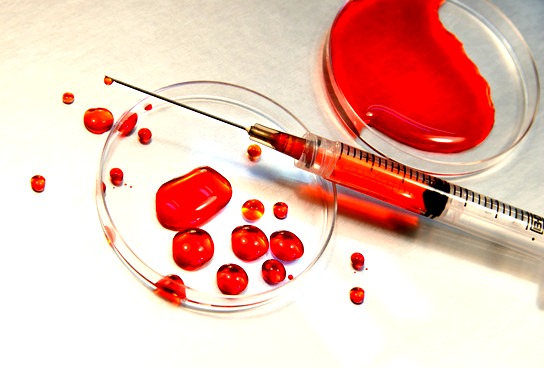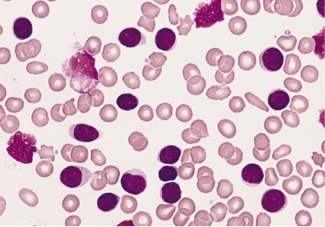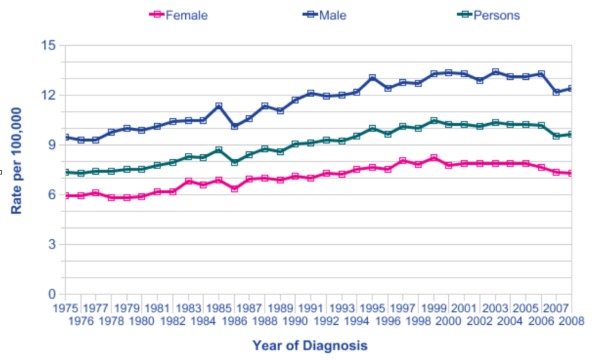When the number of children who get measles is compared with the number who get autism, and then the relative harm from each is factored in, it becomes obvious that there’s an agenda behind the measles fear mongering. Measles is usually a self-limiting one-time event in life. Autism is life devastated.
by Heidi Stevenson
Here we go again. Fear mongering over measles is in full swing. To listen to the hype from the medical establishment, you’d think it was smallpox, not the relatively mild disease that doesn’t begin to compare with the harm done by the so-called cure for measles, vaccinations. The reality is that the autism epidemic dwarfs the risk of measles in every sense.
First, though, let’s get a sense of the measles hysteria being mounted by seeing what the papers are saying. A 25-year-old man was found dead, and the press was talking about measles before it was known if he’d had it. The Telegraph screams, “Two million children at risk of measles.” The rush is on to blame the unvaccinated—yet none of the reports are telling us if those who come down with measles were vaccinated or not. The WHO’s director for the European region, Zsuzsanna Jakab, says:
Every country in the European region must take the opportunity now to raise coverage amongst susceptible populations, improve surveillance and severely reduce measles virus circulation before the approaching measles high season.
That can be translated as: European countries must start a mandatory vaccination campaign.
Always, the implication is that parents who don’t vaccinate their children are guilty, not only for harm to their own children, but also for putting everyone else at risk. Never are the risks of the vaccinations considered. And there’s a reason for that: If the dangers and likelihood of harm from vaccines were compared with those of measles, the truth would result in widespread resistance to it and other vaccines.
So, let’s do a comparison and see the relative risks from measles and vaccinations:
United Kingdom
According to the BBC today, since the first of the year, there were 808 cases of measles in Wales. If we extrapolate that out to a year, we would have 2,681 cases of measles.
Let’s assume that rate continues, so that a total of 2,681 children come down with measles. According to the UK’s Office of National Statistics, the number of live births in the UK over the last few years has been around 790,000 per year. Most of those children are vaccinated. Let’s assume a very conservative number actually received vaccinations for most childhood diseases, and put the number vaccinated at 80%, or about 632,000. Then, let’s round that downwards, just to be sure we err on the side of caution, and make that figure 630,000 new children who receive their vaccinations each year.
Now, the rate of autism is debated, but the currently-accepted figure is that around 1 in 50 children develop it. That’s 2% of all children, and so far, it appears that only vaccinated children suffer from the disease. (Try to find an unvaccinated autistic child!) So, if we refer to the conservative figure of 630,000 new children who are vaccinated each year, that brings the number of newly-autistic children to about 12,600! That’s 12,600 chronically ill children whose potential in life has been devasted added to all those from previous years.
Compare 12,600 newly autistic children every year with 2,681 children coming down with measles! Multiply the number of measles cases tenfold, and even then, it’s minor compared to children thrust into lives of pain and limitation from autism—not to mention the drain on their families and society as a whole. A few days, even weeks, of illness simply don’t compare with a lifetime of destroyed hopes and options, full of pain and debility.
Now, let’s consider deaths. The figure that the NHS is giving for measles deaths is about 1 in 1,000 cases. That means we can anticipate about 3 deaths this year from measles. But the only credible cause of cot death (sudden infant death syndrome – SIDS) is vaccinations. The Lullaby Trust reports that there were 287 cot deaths in 2010. Compare 3 deaths from measles against 287 cot deaths related to vaccines, and then add in the 12,600 new cases of autism each year. Measles isn’t even in the same ballpark in terms of harm.
Why All the Fear Mongering About Measles?
In even the worst-case scenario, measles cannot compare with autism and cot death for either severity of risk or numbers involved. Where is the sense of proportion in the news media and our public health institutions?
If we consider the overall effects and losses from autism alone, it’s obvious that measles isn’t even in the same game. However, instead we have massive resources thrown at measles. An enormous fear mongering campaign has been launched, with the goal of pressing everyone, parents and adults alike, to have more and more vaccinations. At the same time, autism and sudden infant death receive little more than lip service.
The question must be asked: Why? Why are so much energy and resources being put into scaring people to get vaccinated for a disease that causes a tiny fraction of the harm, both fiscally and in human terms, that measles does?
It seems obvious to me, and to all those who have personally gone to the effort of reading the research themselves, that there’s an insidious campaign of misdirection going on. Its purpose is to promote the belief that vaccines are more beneficial than harmful, to literally scare and shame people into vaccinating both their children and themselves—no matter what the personal or societal cost.
Autism and sudden infant deaths are ignored while effort is focused on fear mongering to scare people into vaccine clinics. Right now, the disease of choice is measles. Last time around, it was influenza. The campaigns come and go, but all rely on the same techniques: Ignoring and denying the harms of vaccines and the chronic diseases they cause, while fanning the flames of fear against diseases that are rarely more than a passing unpleasantness.
Sadly, it’s been working. People have been running to the vaccine clinics and getting their jabs. Fear sells, and Big Pharma not only knows how to market it, but also to direct attention away from the true nightmare.


